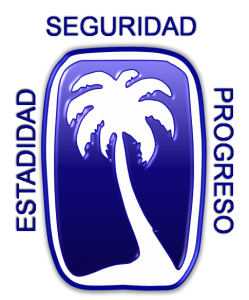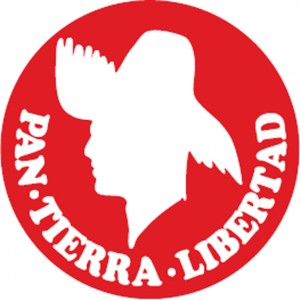Puerto Rico is prepared to choose its legislators, mayors, and the governor today in the November 6 elections. But these elections will have something different from previous years. Along with the elections, there will be a referendum about the political status of the island.
The issue of political status in Puerto Rico is a centuries-old problem. Ever since the 1898 United States invasion of the island, towards the end of the Spanish-American war, Puerto Rico has been subject to the will of the US Congress. In 1952 Puerto Rico achieved a certain level of autonomy over internal and economic affairs, becoming a US Insular Area, which is also known in official documents as a Commonwealth. Even though this status —which is the current status of Puerto Rico— was an improvement over the type of government that it replaced (the governor was appointed by the president and the members of his cabinet confirmed by the US Senate), it has not provided for the full development of Puerto Rico.
The island has representation in Congress, a Resident Commissioner who does not have the right to vote. Puerto Ricans also do not have the right to vote for the president, even though presidential candidates from the Republican and Democratic Parties in the US hold primaries on the island and collect funds from Puerto Rican residents to carry out their campaigns. Furthermore, the island is subject to the Merchant Marine Act of 1920, or Jones Act, which states that Puerto Rico can only use US merchant ships to do commerce, thus raising the cost of living because these are the most expensive marine merchants in the world.
For the people of Puerto Rico, political status referendums are not new. Throughout its political history, three have been held [es]: in 1967, 1993, and 1998. None have been able to solidify a change in existing relations with the US. The many reasons for this are complex, and it seems that this referendum will not be an exception. Dr. Héctor Pesquera, copresident of the Hostosian National Independence Movement (MINH) [es, named after independence advocate Eugenio María de Hostos], said this [es] about the referendum:
Para el independentismo, la consulta que se llevará a cabo sobre preferencias de status el próximo 6 de noviembre es un palo embarrao por las dos puntas. Por donde quiera que lo cojas, te embarras.
The referendum was proposed by the governor Luis Fortuño of the Partido Nuevo Progresista (PNP) [es], who seeks to annex Puerto Rico as the 51st state, and ironically, is also supported by the Partido Independentista Puertorriqueño (PIP) [es]. The referendum has received many criticisms from the start. One criticism is the way in which the vote has been designed, which consists of two questions. The first asks if the voter agrees with maintaining the current relationship with the US. The second question lets the voter choose, independently of whether he or she answered YES or NO to the first question, among the three status alternatives that are presented: statehood (annexation), independence, or as a sovereign US insular area (also referred to as free association) [as opposed to currently being a non-sovereign US insular area].
Needless to say, the way in which the vote is designed presents serious problems when the time comes to interpret the results, since the possibility exists that the YES vote will win together with one of the three alternatives to the current status. It is necessary to add that the definitions of these alternatives were unilaterally written by the PNP, which has caused the principal opposition party, the Partido Popular Democrático (PPD) [es], to make the call to select YES for the first question and to leave the second question blank. This is being suggested both as a way to protest the referendum proposed by Governor Fortuño and because they do not feel represented by the definition of the sovereign US insular area that will appear on the ballot. Some within the PNP have expressed reservations about the referendum, since they remember the failure of the referendums in 1993 and 1998 that were supported by the PNP. In addition to this, the referendum is nothing more than a simple query that does not legally bind Congress to act, regardless of the results. In the blog Raciocinio, ljvillanueva asks [es]:
A parte [sic] de ser bastante confuso, hay que preguntar cual será el efecto de este plebiscito si, por ejemplo, gana la estadidad. ¿El Congreso de los EEUU le hará caso a este resultado?
The general feeling is that ultimately, no matter which option prevails in the referendum, Congress will not consider the results important, because it was not a referendum that came with their endorsement. Fermín L. Arraiza Navas de Red Betances feels [es] that:
Dadas las circunstancias muy particulares del caso de Puerto Rico, así como la falta de voluntad del Congreso estadounidense de propiciar un proceso verdaderamente descolonizador, la única alternativa viable con garantías mínimas es propiciar que la controversia sea referida ante la Corte Internacional de Justicia, no como un asunto de derechos civiles, según ha sido planteado por el Dr. Pedro Rosselló [ex gobernador de Puerto Rico] ante la Comisión de Derechos Humanos de la Organización de Estados Americanos (O.E.A.), sino como el derecho colectivo de nuestro pueblo a existir y ser reconocido internacionalmente por la comunidad de naciones como entidad jurídica capaz de participar en las decisiones internacionales que afectan nuestro futuro político, económico, social y cultural.
Carlos Pabón, writing for the digital magazine 80 grados, thinks [es] that these political status referendums really are not worth it and that they impede the discussion of truly urgent issues for Puerto Rico:
El status es una suerte de black hole que se traga todo en el espacio político de la isla. Esto a pesar de que consistentemente las encuestas de opinión indican que la mayoría de los electores no consideran el status un asunto crucial o prioritario. En estas encuestas de preferencias, el status siempre queda relegado ante asuntos como la criminalidad, el narcotráfico, la salud, la educación y otros. Es el paradigma del status uno de los factores fundamentales que obstaculiza proyectos democráticos alternos; y la discusión de temas de vital importancia y extrema urgencia.
Later he added:
El siglo XX se acabó, pero en la isla el debate político sigue centrado en las alternativas político-jurídicas –independencia, autonomía, anexión– del siglo XIX, como si éstas tuvieran plena vigencia en el mundo globalizado contemporáneo. […] De ahí la terrible miseria y el achatamiento del horizonte e imaginario político en Puerto Rico. Habría que preguntarse: ¿qué alternativas proponen las fórmulas tradicionales del status, en tanto imaginarios políticos anclados en el siglo XIX, al mundo del siglo XXI?










2 comments